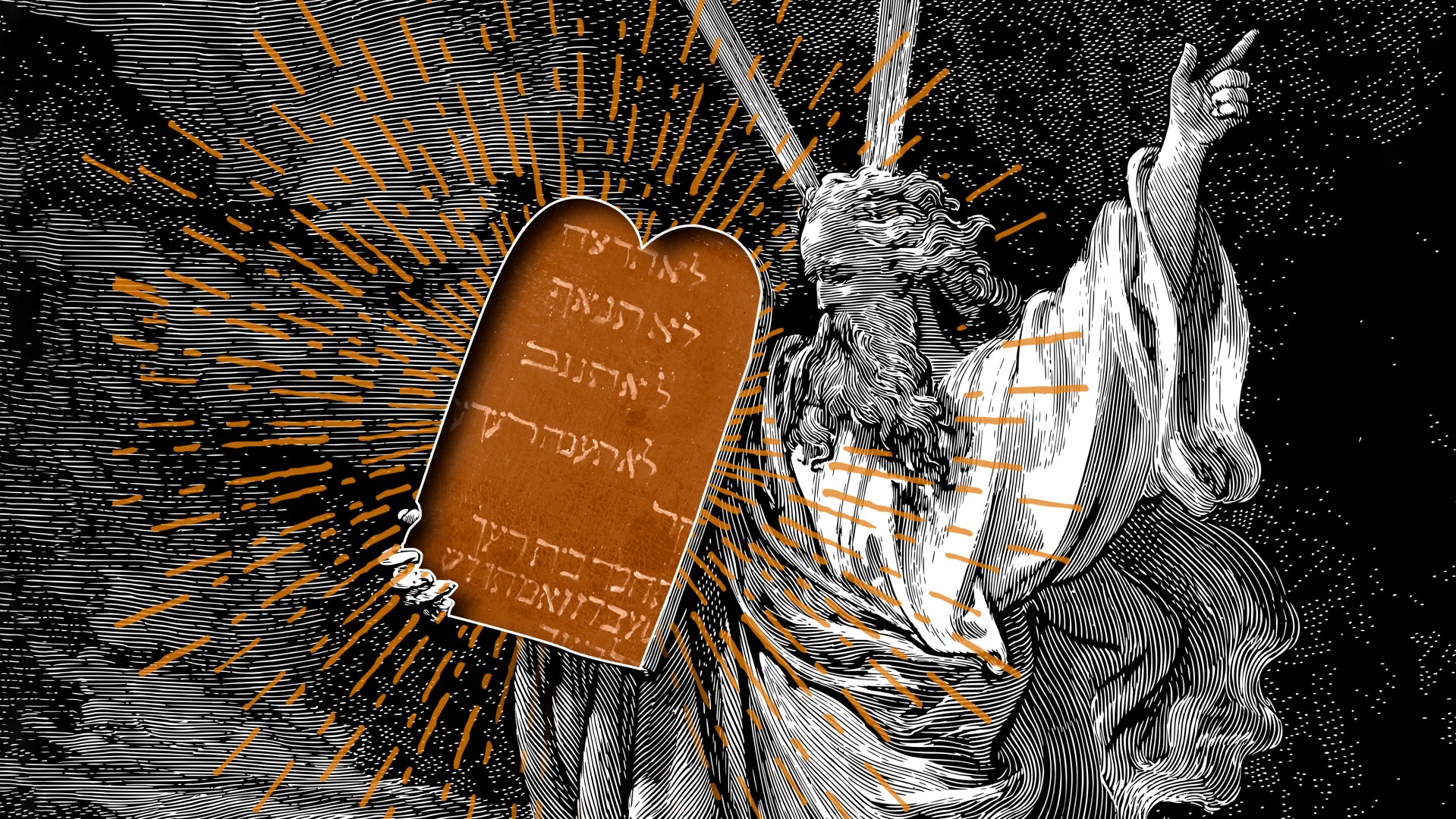Considering they are among the most influential words ever written, there are a number of curious things about the Ten Commandments. To start, there are two versions, with subtly different wording (Ex. 20:1–17; Deut. 5:6–21). No one knows how they were divided into two tablets. The first statement (“I am the Lord your God …”) is not really a command.
Most awkwardly, there appear to be more than ten. The phrase “you shall” appears 12 times, and that does not include commands to “remember the Sabbath” or “honor your father and mother.” The Orthodox Church and most Protestants solve this problem by combining all the commands on coveting into one. Roman Catholics address it by grouping the prohibitions on idolatry: Augustine argued that the first commandment (no other gods) includes what many would consider the second (no graven images).
Many would concede that the precise commandment count doesn’t really matter, so long as we obey them all. I agree. But another curious feature of the Ten Commandments that does matter, and which frequently goes unnoticed, is the fact that there are ten theological affirmations—ten attributes of God, if you like—woven through them. If the text tells us who we should be, it also tells us who God is. Revelation sits alongside regulation.
We have already noted the affirmation. God’s words to Israel begin not with a commandment, but with the name of God: “I am the Lord your God …” (Ex. 20:2, ESV throughout). In other words, I am Yahweh, the God who made a covenant with Abraham. You know my name because I revealed it to you. This relationship does not begin with your commitment to me (as important as that is), but with mine to you.
The same sentence points to God’s acts of redemption: “… who brought you out of the land of Egypt, out of the house of slavery.” The actual commandments still haven’t started yet. Before giving any instructions, God wants Israel to know beyond a doubt that he is a redeeming, rescuing, liberating God. Only then does he begin clarifying how obedience and gratitude should be expressed. Grace comes first, and then instruction. Rescue precedes rules.
The first two commandments (at least in the Protestant tally) relate to worship. They clearly, if implicitly, highlight two more divine attributes: God’s oneness (“You shall have no other gods before me,” v. 3), and his invisibility (“You shall not make for yourselves a carved image, or any likeness of anything,” v. 4). There is only one God to worship—and since he cannot be seen, it is blasphemous to make a visual representation of him, as Israel will discover to its shame in Exodus 32.
This command is followed, and indeed explained, by another two divine attributes, namely God’s jealousy and his steadfast love. His jealousy means he will judge iniquities for three or four generations. (It is important to distinguish between envy, the sinful desire for what belongs to someone else, and divine jealousy, God’s holy desire to keep what belongs to him from anyone else.) His steadfast love, on the other hand, lasts for thousands of generations (Deut. 7:9), outstripping his punishments by several orders of magnitude. Mercy triumphs over judgment.
That does not mean the guilty go unpunished. He remains a God of justice, as the third commandment affirms: “The Lord will not hold him guiltless who takes his name in vain” (Ex. 20:7). But despite the thunder and lightning, subsequent commandments stress other attributes. He is also the God of creation, who made the heavens and the earth and everything in them, filling the cosmos with abundance, life, and wonder (v. 11). He is the God of rest, who not only sits back and enjoys what he has made but blesses the Sabbath day and makes it holy so that his people can rest as well (vv. 8–10). And he is the God of promise, who pledges good things (in this case, the land) as an inheritance to those who honor their parents (v. 12).
The Ten Commandments are central to Christian ethics, used by Jesus and Paul as a framework for teaching on the obedience of faith. But they are shot through with God’s disclosure of who he is and what he offers. Perhaps we should call them the Ten Commitments.
Andrew Wilson is teaching pastor at King’s Church London and the author of God of All Things. Follow him on Twitter @AJWTheology.










